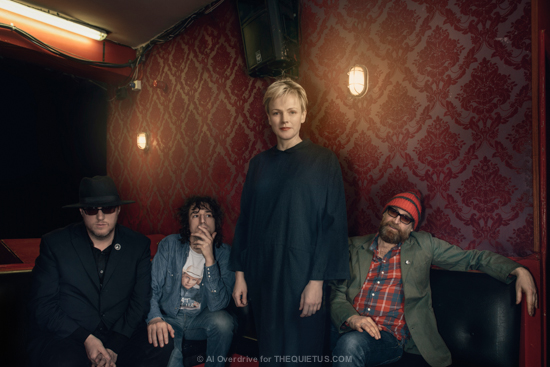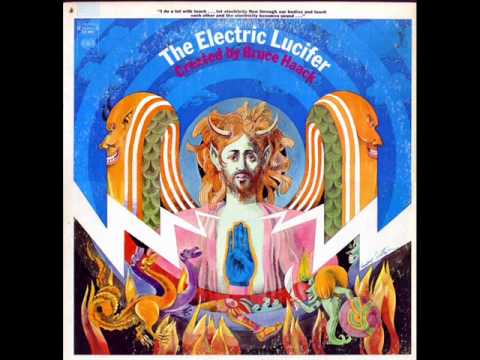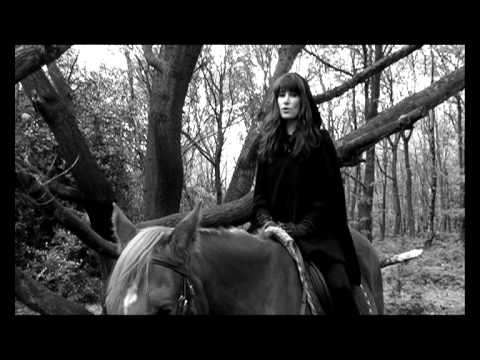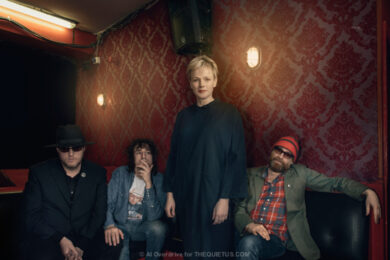All photographs courtesy of Al Overdrive
Inspiration can come from anywhere. One Saturday night a couple of years ago when Adrian Anthony Flanagan – a self-confessed “hypersensitive, manically depressed, melody infested wordsmith and psychic from Salford” – sat down in front of the telly with a beer, it hit him like a thunderbolt. While watching The National Lottery: In It To Win It, he saw Dale Winton ask one of the contestants what the Viking equivalent to Heaven was. After thinking about it for a few seconds, the bloke, who was from Rotherham, said in a broad South Yorkshire accent: “Valhalla, Dale.” Adrian smiled to himself and repeated it out loud: “Valhalla, Dale…. Valhalla Dale… VALHALLA DALE! I’m having that.”
Valhalla Dale is the name of the fictional hinterland at the edge of Sheffield where most of the action in Eccentronic Research Council’s excellent new album Johnny Rocket, Narcissist & Music Machine… I’m Your Biggest Fan takes place. Johnny Rocket is the frontman of a local psych band from Valhalla Dale called The Moonlandingz who dress in lederhosen and tinfoil and the album is told from the point of view of an obsessional fan of his, played by the sublime Maxine Peake.
The album is a glorious concoction of bewitching spoken word, Radiophonic synth wizardry, hauntological soundscaping, early electronic pop and magma hot psych rock brewed up by Adrian, Dean Honer (“a big bearded, synth yoda and analogue nerd from Essex” – Adrian’s words) and Maxine Peake (“a divine intervention and the greatest interpreter for my words I could have” – also Adrian’s words). The album not only deals with the horror of ending up with a stalker (something Adrian knows about from bitter first hand experience) but is also about the malign influence of social media and the reverberations of Thatcherism which are still being felt around the country today, two years after her death.
With its cast of grotesques and gallows humour, Johnny Rocket is like a Chaucerian epic retold by David Peace with music by Bruce Haack and The Focus Group for a music hall located in Hell. It’s the fourth great album in three years for the ERC but this one is the best yet – the care taken over the project is evinced by the fact there is even a full record by fake band, The Moonlandingz coming out on the same as the album (although you can buy it digitally from next Monday, March 16) via Fat White Family’s Without Consent label, and also features Lias Saoudi on vocals and Saul Adamczewski on guitar.
It was my pleasure to spend the morning with Adrian, Dean, Maxine and Lias recently to get the low down on this ace record.
How do you describe what music Eccentronic Research Council make?
Adrian Flanagan: Psychedelic ouija pop, avant audiophonic dub taxidermy… or something like that.
Dean Honer: I suppose we don’t try and sound contemporary or up to date. We hark back to stuff from the early electronic pop period. That would be one of our main influences. Things like Joe Meek, Bruce Haack, the Radiophonic Workshop and all of that gubbins.
What’s your go to Bruce Haack LP? The Electric Lucifer?
AF and DH: The Electric Lucifer.
Lias Saoudi: I’m a big fan of that record. It’s epic.
DH: It’s pretty mind-blowing the first time you hear it. I think Barry 7 from Add N To X played it to me when I was doing some work with them. Barry said, “I want to sound like this.” When he told me it was some geezer back in 1968 I couldn’t believe it.
Electronic music is like a secret history really isn’t it? You have all of these larger than life characters but you never really hear about them in the same way you hear about rock musicians.
DH: Why is that? I guess this music was happening in back rooms and not on stages. And people didn’t get it. Also it was coming out of the avant garde of the 1950s, out of musique concrete and tape manipulation. It was studio based music because of the size of the machines they were using. It wasn’t really until Kraftwerk and Tangerine Dream started taking it out live but even then it was a big undertaking.
Dean and Adrian, how did you two meet?
DH: In 1999 I was rehearsing in a studio in Sheffield with the All Seeing I to practice for some live shows.
AF: And I was working in the rehearsal room upstairs. I worked in the office and let people in to use the studio. Dean was downstairs with his band The All Seeing I. At the time they had Phil Oakey, Jarvis Cocker, Roisin Murphy as members, and all of them kept on ringing the bell. It was really annoying because at the time I was trying to do some four track recordings but they were playing this really weird disco music really loud downstairs. I was like, “Fucking shut up!” And the doorbell would go again, “Fucking hell it’s Phil Oakey!” And then again, “It’s Jarvis… is The All Seeing I there please?” It actually got on my nerves so much that I thought if I burn down the building now I could become Sheffield’s number one musician overnight. But I decided to let them live instead.
But then Dean heard some of the tracks that I was doing. They were really crap… like Daniel Johnson or something. So Dean said, “Come to my studio and let’s do this properly.” He invited me down and there was no guitars there, only synths. And that was my first introduction to analogue synths. There were all these instruments that I didn’t know how to work. And I still don’t really. And straight away he was like, “I’m going on holiday. Here’s the keys to my studio. Get stuck in.”
When did you first start collecting analog gear Dean?
DH: I used to live in Essex so I was quite into Fad Gadget and Depeche Mode in the early 80s. I got my first electronic band together around about 1982 when I was 16.
Given that you’ve been making this music for so long, what do you make of the revival in fortune, so to speak, of the synthesizer?
DH and AF: [LAUGHS]
Just say it…
AF: A lot of it is style over substance isn’t it? It’s like a fashion thing as opposed to using the equipment in an organic manner.
DH: I think a lot of younger kids are used to using computer programmes so when they get their hands on some real knobs…
LS: It’s nice to get your hands on some real knobs isn’t it?
AF: We’ve got a room full of ‘em here.
Maxine Peake: You wouldn’t want to get your hands on these knobs.
LS: No, I mean it. When you’re fed up of playing your guitar it’s nice to get your hands on some knobs.
DH: For kids who are used to using a mouse it’s good. If they get their hands on something that’s more tactile and more immediate, it’s a good experience.
LS: I think it’s easy to be cynical Adrian. Whether it’s fashion or not it’s a good thing that more people are getting into electronics.
DH: There are probably more synths being made now than there ever was. And they’re remaking all of the old classic ones.
LS: And they sound great. It’s really good to have that grit and irregularity in the music.
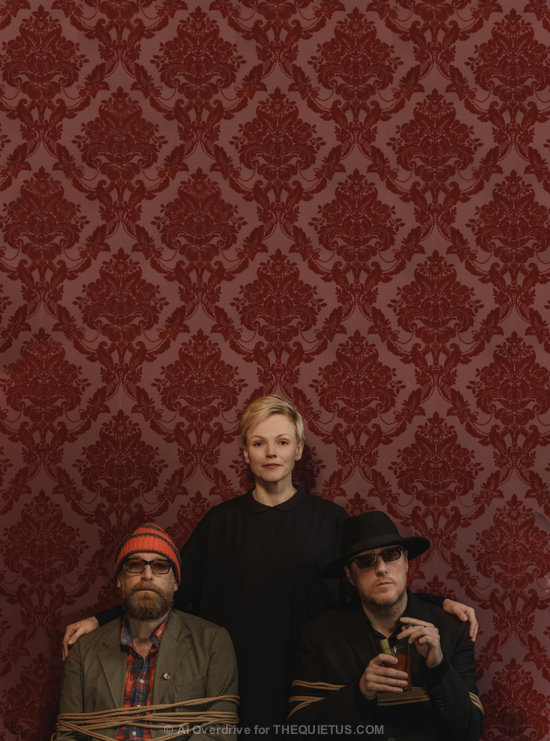
So how did the ERC actually start?
AF: I think it happened purely by accident. Me and Maxine were talking about Pendle witches and we decided it would be good to do something on that so we got together and had a day out in Pendle. We just drove round Pendle Hill all day. It was like the Villages Of The Damned x 12. Everyone we spoke to said they were related to one of the witches.
Maxine, how did you meet these two fine and upstanding gentlemen?
MP: I’m not on it anymore but I was having a little dabble on Facebook a few years ago. So one night I went to see Chrome Hoof at Islington Mill and I just put on my Facebook profile about how brilliant they were. And then I got this message from this guy saying, “If you like Chrome Hoof, you’ll like my band.” I was just like, “Yeah, whatever.” And then he said, “I’ll send you some tracks over.” So I gave them a listen and Adrian was like, “Do you want to come and be in a music video I’m doing with Candie Payne?” He was shooting a promo for ‘Are You One’ by his band The Chanteuse And The Crippled Claw on Kersal Moor in Salford. He brought one of those really cheap all in one rabbit suits. And he said, “Will you put this on and run round with a water pistol?” And I’d just completed four months of BBC telly, so I was at an all time low and feeling creatively drained because there isn’t much in the way of creativity in TV drama, so I said, “Yeah, why not.” And I had a really enjoyable afternoon in Salford. I remember it was hilarious. People were out walking their dogs but didn’t bat an eyelid at what was going on. I think that sort of thing must happen a lot on Kersal Moor. And then we just kind of kept in touch because we had a lot of music we liked in common. And I first met Dean when I went round to his studio to record 1612 Underture.
AF: I asked her if she’d meet me on a moor in Salford, dress up as bunny rabbit and have a water pistol fight in exchange for a bottle of Thunderbird and a pickled egg. I forgot to bring the Thunderbird and the egg, so I paid her in rockabilly records and a signed photo of Pat Phoenix instead.
Who broached the idea of this day out becoming an album?
AF: We didn’t even know how it would pan out. We just said, “Let’s go to Pendle and see what happens.” We thought we might write something.
MP: [LAUGHS] Adrian said, “Let’s go away and write something.” So I said alright and thought, “Yeah, I’m going to think about this for a week or so and then crack on” but he just phoned up after a few days and said, “I’ve done it.” He’d literally done it in no time at all. He wrote loads and when I had a look at it, I thought, “There’s not even any point to me even having a go.”
So obviously Maxine you’re no stranger to reading out other people’s words. Do you have any boundaries or have you ever reached a point where you’ve gone, “I’m not reading this you idiot”?
MP: No. I’ve never had a problem with any of it. The only thing I was concerned about was upsetting Terry Duckworth. He’s played by an actor Nigel Pivaro who lives near to where I do and politically he’s brilliant. There was a line on 1612 that compared him to Nick Griffin and I was a bit worried because I didn’t want to upset him. Anyway, it was fine because I got a message back from a mate who works for the Salford Star – a brilliant left wing newspaper – saying that he didn’t mind at all.
What happened next?
AF: Once I wrote the lyrics I got Maxine to put down the words to tape. And me and Dean built it up round that from scratch, treating it as a soundtrack. We chucked in a couple of song-y things to break it up a bit.
I should say at this juncture that I like your singing Maxine. Why don’t you sing on more of the tracks?
MP: Because I don’t like my singing. I can’t sing.
AF: She doesn’t like it but I think she sounds like a Lancastrian folk princess.
MP: What I don’t mind is singing in character so maybe I’ll do a bit more of that in future.
AF: I think the first time we did ‘Another Witch Is Dead’ was in your back kitchen wasn’t it?
MP: Yeah. He was shouting at me, “Do it more like this!” And I was like, “I’ll be doing it a bit more like nobody in a bit if you carry on.”
AF: I was saying, “Imagine it’s the 1600s, you’ve never heard music before because there is no music. And imagine you’re living on gruel.”
MP: But to be honest, I didn’t know it was going to be an album.
AF: Yeah, it was because of Andy Votel. He heard about what I was doing from a mutual friend and phoned me up to ask me what I was doing. I told him I’d sign with him if he’d only put out one copy of the album in Witches Galore, the shop in Pendle we mention on the album. And he was like, “Definitely! That’s what we’ll do!” Because he thinks about the concept as opposed to selling records. It was his partner Doug [Shipton] who said, “Er… I think we’ll put out some CDs and maybe a few more vinyl copies for other shops as well…” I love Andy Votel. Great ideas. Great ears.
MP: Can you put that in a pull quote in the feature John? “Andy Votel… Great ears.”
AF: Andy Votel… Great ears but perfect testicles.
MP: And there wasn’t any discussion about us playing live either. Adrian just rang me up and said, “We’ve got an album launch show coming up.” And I was like, “You what?” The gig was hilarious. It was in this subterranean club in Manchester that used to be an abattoir.
"Andy Votel… great ears."
Adrian Flanagan
Maxine, I’m doing a gig with Adrian and Dean in Sheffield in May. They’re doing synth music while I’m doing readings. Do you have any advice for me on how to deal with them?
MP: Deal with these two? Just ignore them John. JUST IGNORE THEM! Especially Adrian.
LS: Don’t let Adrian play his mind games on you John.
MP: He’ll start doing that, ‘I’m a slightly friendlier Mark E. Smith’ routine but just ignore him. And watch he doesn’t drag you into the crowd during the show…
AF: We played a kids library in Preston and I dragged her off the stage into the crowd and we sang and danced together.
Obviously, Dean and Adrian have played on stage many times before. How have you found it being the front person of a group Maxine?
MP: I don’t know how people do it. It’s a totally different art form to acting. It’s about presence isn’t it?
AF: But we think you’ve got it in spades. We think you’re one of the best front people in the country.
MP: Ah, bless you love.
LS: It’s all about getting to the stage of where you’re not aware of what you’re doing any more. You have to know what you’re doing to begin with but then you have to get to a place where you’re not aware of what you’re doing any more. And then it will be entertaining for those watching. Even if it goes graphically wrong it will still be entertaining.
MP: We did that gig at Islington Mill and I started reading from that metalwork book… people were like, “Yeah! This is great!” It’s totally different. Like when I’m doing a play, I’ll get to the venue an hour before hand and sit in the dressing room and I won’t have a drink. With this it’s like, “Come on, let’s go and have a meal and have something to drink.”
AF: FIFTEEN PINTS EACH!
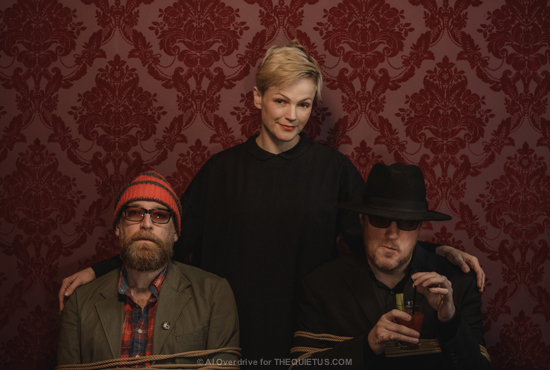
Are there any parallels at all between being making an album like Johnny Rocket and appearing in a big hit show like Silk?
MP: No. [LAUGHS] It’s a different level of creativity. What I earn my living from – appearing on television – is not particularly creative which is why this was so welcome a thing to get involved in because you’re involved with a really great bunch of people who are creative because they really want to do it.
Is it maybe closer in spirit to when you work in theatre?
MP: Definitely.
Do Fat White Family have a pre-gig ritual? Do you all hold hands together and pray like in some weird suicide cult?
LS: We usually have a series of arguments that border on violence. And the atmosphere gets hotter and hotter as it gets nearer to the time to go on stage. For the hour before we go on stage I just pace up and down. I’ve usually got the runs. It’s a physical thing. I’m always fine as soon as I get on stage but before hand it’s a bit of panic.
I used to follow a band in St Helens called GNARL who used to punch each other in the face before going on stage.
LS: When you have those arguments before going on stage the shows are always good though. And then you go onstage and it’s great. If you go on while everyone loves each other it’s always rubbish but if you’re scathing of one another first it’s great.
How did the ERC and the Fat Whites hook up then?
LS: We met through you John.
AF: Yeah, I picked Champagne Holocaust by Fat White Family as one of my album choices in the Bakers Dozen feature I did for the Quietus. They invited me to hang out with them in Sheffield at one of their shows, we got on great. Then they invited me to come with them the next day to Manchester and I was mad enough to get in the van with them. Subsequently, they’ve had me DJing at shows before they go on. Dean and I then did a reworking of ‘Touch The Leather’ for them and this led on to The Moonlandingz. I love Saul and I love Lias, they are special apes.
LS: When Saul and I went up to Sheffield to do The Moonlandingz, it was just before we got signed. And then once we signed the label deal it was a no-brainer. Signing the ERC seemed like a sure thing.
So, Johnny Rocket is very funny but it also has a very serious and quite dark theme; that of stalking and obsessional behaviour. Can you tell me where this came from?
AF: I wanted to write something that talks about people who hide behind the safety of their computers, making other people’s lives a misery. I wanted to cover mental illness. I wanted to hold a mirror up to the listener themselves. And I wanted to write an LP for the music fan in us all.
Where did the idea come from though? Have you ever experienced an obsessive fan?
AF: It’s all written from my own experience. I had a stalker who would email me these bizarre messages. She would follow me in the street; turning up at shows and places I might be performing across the country, ingratiating herself with my friends, being a nuisance, pretending to be someone she wasn’t and generally creeping me out majorly for about six years.
You expect that kind of unwanted behavior, if you’re in a massive band but when you’re just a dickhead from Salford playing gigs to ten people in Liverpool (as I was back then), you tend to notice it more. It makes you feel really claustrophobic, unnerved, sick and vulnerable…
It’s nice when people are really in to what you do but please don’t expect me to greet you at the door, or be courteous if you’re following me down the street, moving into the house round the corner from me and getting tattoos of badges I wear.
I’m aware that I’m possibly putting myself in danger by doing this, or that the person may even be very flattered that their behavioral patterns have influenced this album; but I just needed to get it off my chest and address it.
There used to be a time when bands, pop stars and screen stars seemed to live in some magical and unobtainable world; but now, thanks to social media, everyone is accessible. That’s because everyone’s a narcissist and no one more so than Joe public itself. Anyone with 50 followers on Twitter can think of themselves as having their own fan club. It’s a shame that when given that platform, all some people can do is share pictures of their dinner. Social media has created a monster out of many people; false stars with no discernible talent. Unless having a pretty face or gormlessly, re-tweeting other people’s opinions, has somehow become a talent in 2015. In many ways, I wish someone would destroy the internet, it’s filled with fuckwadery.
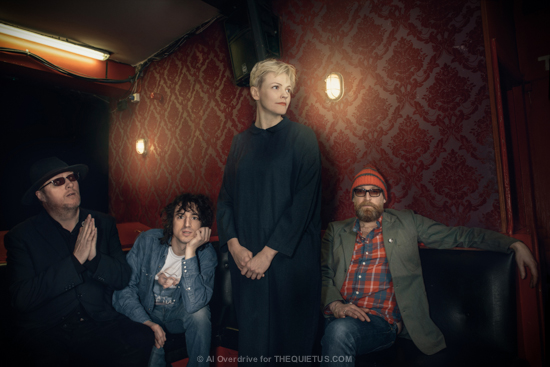
What about the rest of you? Lias?
LS: We’d get some at the Queen’s Head [FWF’s Stockwell pub HQ]. It took a long time for us to get signed because no one would touch us for quite a while. So for ages I was living at the Queen’s Head and when you live in a pub there are pretty much no boundaries between you and the outside world. So I’d be in bed sometimes with a nasty hangover and somebody would just walk in. I wouldn’t even know who they were and they’d just be stood there in my bedroom going, “Alright man!” They’d just be there in the pub staring at you. Outside of that, the last time we went on tour round England it was a bit weird – the whole thing had grown a bit and all of the venues were bigger and all sold out. So I’d usually hang out in the bar afterwards just to see who was about and have a drink, and on one night in the Black Country it was quite brutal… quite horrible. There was this gaggles of middle aged women that kind of attached themselves to me. It wasn’t in any way pleasant. And they were all really drunk going, “Oh I really love you…” And as soon as I said, “Look, I really need to talk to my friend here, they just switched, “You fucking cunt. You piece of shit. You’re so up yourself.” And I was like, “Ah right. So this is it now? Now I have to stay backstage after every gig?”
Does Saul get impressionable teenagers who have pulled out one tooth to try and look like him?
LS: There are quite a few kids who are into that communist chic thing…
There’s a real roughneck, partially feral Hasidic Jewish kid who lives round the corner from me who looks exactly like him. It freaks me out. He walks round the neighbourhood shouting at cars and spitting a lot. People cross the road when they see him coming. But he looks exactly like Saul but with a yarmulke and ringlets.
LS: Are you sure it wasn’t him? He goes in for a bit of a Jewish vibe sometimes.
Dean, what about you?
DH: When MySpace first started there was a Japanese girl who used to send [The All Seeing I] a lot of emails and messages that seemed to come from a dark place really. I had this sneaking suspicion she was emailing from a hospital.
How about you Maxine?
MP: No. I’ve got people doing blog pages and there are people who chart everything that I do but I think that’s quite sweet really. It doesn’t seem weird or dark. I think musicians get it different to actors. And also with actors I think it depends on the parts you play as well. It would be different if I was a Hollywood star. And I think it’s different depending on whether you’re a man or a woman as well. I think that perhaps girls tend to be more obsessional than boys… I don’t know… I could be wrong.
I want to flip the question now. Where any of you obsessional fans of musicians yourselves?
LS: When I was 15 it was Bob Dylan. Me and my girlfriend went to see him live at the Belfast Odyssey Arena and after he finished playing we waited around until everyone else had left. Up on the keyboard stand was the cup he had be drinking from, so we got on stage and took it. It was grapefruit juice. And she’s still got it in a decanter. We were like, “Wow. Bob Dylan’s cup. And it’s got his lip marks on it.” We had an argument on the way home about who was going to keep it.
AF: Adam Ant. When I was about seven. I remember going to the local social club with a stripe across my face and a scarf tucked round my trousers. I thought I was business. And these two older kids came up to me and said, “Are you gay?” And I didn’t know what it meant so I said, “No, I’m catholic.”
MP: My first obsession was with Paul Weller when he was in the Style Council and my sister used to tell me he looked like a Toblerone. And then it was the Stone Roses. I went to see them at Spike Island and when Ian Brown came on stage I had that kind of [mimics hyperventilating] reaction. I really shocked myself. I met him only recently and it’s funny how it doesn’t really leave you. A friend of mine who knew him said he’d introduce us but I had to beg him not to, “I don’t want to meet him – it’ll be too painful.” But then I did meet him and he was lovely.
Are any of the lyrics from Johnny Rocket based on real life experiences – like the night in the hipster electro bar in Liverpool?
AF: Most of it is based on real emails I’ve received over the years and in the flesh experiences,yes. The whole scene that happens in a hipster bar in Liverpool, happened in real life, word for word-ish. The venue was the Korova Bar. A band I was doing at the time with some pals, for fun, played there. And the place burnt down after we played; literally the same night.
And what next for the ERC?
AF: With this album we want to go mainstream, I want to go on Later With Jools Holland. I want him to play ‘Moogie Woogie’ synth for us. And after that? Job Club, the grave or HELLO! magazine.

